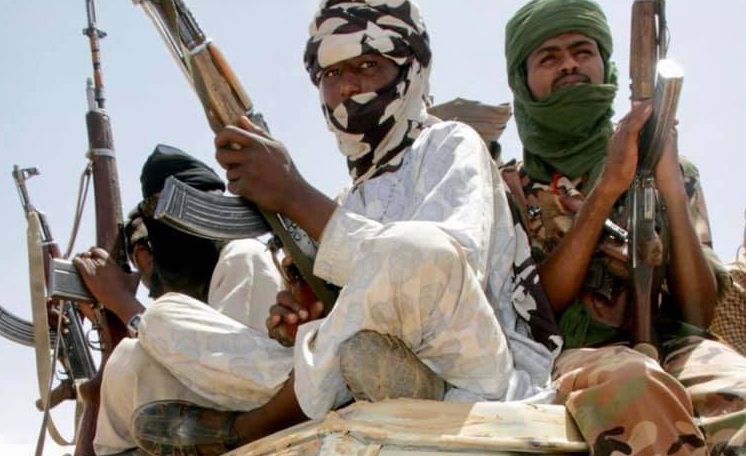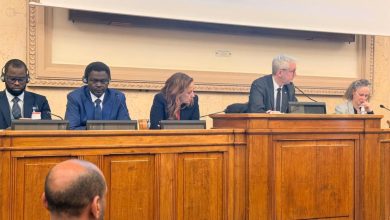Ineligibility of the Rapid Support Forces and Threat to Peace Agreements in Sudan

Sudan Events – Agencies
(2) Systematic Attacks on Healthcare Facilities
1. Attack on Rifaa Hospital (December 18, 2023): Assault on the Healthcare System
On December 18, 2023, the Rapid Support Forces (RSF) stormed Rifaa Hospital, leading to the arrest of several medical staff and patients, and a complete disruption of medical services. This attack was not only a violation of international humanitarian law, but also part of a systematic strategy aimed at weakening civilians’ access to healthcare. The destruction of Rifaa Hospital represents a blatant violation of Article 18 of the Fourth Geneva Convention, which ensures the protection of medical facilities from attacks.
2. Attack on Al-Fasher South Hospital (June 9, 2024): Assault on Healthcare Workers
On June 9, 2024, the RSF launched an attack on Al-Fasher South Hospital, destroying a significant portion of the building and arresting several medical staff. This attack reflects a total disregard for the rights afforded to healthcare workers under international humanitarian law. This attack violates Article 19 of the Fourth Geneva Convention, which prohibits assaults on medical personnel, and serves as another example of the deliberate use of violence against the healthcare system in Sudan.
3. Attack on Jebel Marra Hospital at Al-Souk Al-Kabir in Al-Fasher (July 2, 2024): Continuing Targeting of Healthcare Facilities
On July 2, 2024, the RSF attacked Jebel Marra Hospital at Al-Souk Al-Kabir in Al-Fasher, destroying large parts of the hospital and killing several patients and medical staff. This attack is a violation of Article 12 of the 1977 Additional Protocol I, which prohibits any hostilities against medical facilities, and is part of a continuing pattern of attacks aimed at crippling the healthcare system in Sudan.
4. Artillery Shelling of Al-Balac Children’s Hospital in Omdurman (July 4, 2024): Targeting Children and Patients
On July 4, 2024, Al-Balac Children’s Hospital in Omdurman was shelled by RSF artillery, resulting in the destruction of parts of the hospital and the death of several children and medical staff.
International laws, particularly the 1949 Geneva Conventions and the 1977 Additional Protocols, emphasize the absolute protection of healthcare facilities and medical personnel during armed conflicts. Article 18 of the Fourth Geneva Convention mandates the protection of hospitals and healthcare facilities from military attacks, prohibiting any hostile actions against these institutions. Article 19 of the same convention forbids attacks on medical personnel performing their humanitarian duties in treating the wounded and sick. Moreover, Article 11 of the 1977 Additional Protocol I reinforces the protection that should be granted to hospitals and healthcare facilities, stressing that these institutions must not be targeted under any circumstances. Article 12 of the same protocol asserts that medical personnel and hospitals must enjoy full immunity from hostilities, and any attack against them constitutes a serious violation of international humanitarian law.
The RSF has become a part of a catastrophic humanitarian crisis, causing the displacement of no less than 12 million Sudanese from their homes, marking the largest wave of displacement in the country’s modern history. In the days and weeks following the start of the conflict, the RSF was observed committing atrocities in the areas they entered, ranging from arbitrary arrests affecting all age groups, with no distinction between men, women, or youth. These individuals are detained without formal charges, often based on suspicions or merely being present in RSF-controlled areas. The violations did not stop there but extended to systematic looting, with the RSF plundering both public and private properties, exacerbating the humanitarian crisis in the affected areas.
The most horrific aspect is that the RSF uses mass rape as a weapon of war to intimidate local populations and force them to flee. International independent organizations have documented hundreds of cases indicating that rape is not an isolated act but a systematic policy used by the RSF to terrorize civilians and control areas. Testimonies collected from survivors reveal harrowing stories of violations against women and girls, who are subjected to mass sexual assaults.
The RSF has also seized homes, turning them into military headquarters or secret detention centers after forcing local populations out at gunpoint, leaving all their belongings behind. These homes are then used by the RSF to organize operations or as secret detention centers where detainees are tortured. These practices reflect a systematic policy aimed at altering the demographic composition of the areas the RSF seizes, adding a new dimension to the humanitarian crisis in Sudan.
Reports from independent international organizations confirm that the RSF blatantly violates international humanitarian law, committing war crimes and crimes against humanity in all areas under its control. These reports indicate that the RSF deliberately targets civilians and civilian infrastructure as part of its strategy to gain territorial control. Additionally, the RSF has not only taken over homes but also seized public facilities such as hospitals and schools, turning them into military bases. These actions have deprived hundreds of thousands of civilians of access to basic services, further complicating the humanitarian situation. The deliberate destruction of infrastructure has led to the collapse of healthcare and education services in affected areas, worsening the plight of civilians.
What has emboldened the RSF to continue these crimes without accountability is the lack of strong and clear oversight mechanisms capable of enforcing the rule of law and deterring the violations committed by these forces. The international community’s failure to implement necessary measures has given the RSF ample room to continue its abuses without fear of any consequences.
Despite the UN Security Council’s resolution on June 13, 2024, clearly calling for the lifting of the siege on Al-Fasher and allowing humanitarian aid, the RSF has chosen to completely disregard this resolution, defiantly challenging the international will and showing contempt for all efforts to bring about peace.
Al-Fasher is now besieged, and its residents suffer from severe humanitarian conditions due to the acute shortage of food and medical supplies. Meanwhile, the RSF continues its indiscriminate attacks, which do not distinguish between civilians and combatants, leading to the deaths of many innocent victims. These actions not only indicate the RSF’s disregard for UN resolutions but also demonstrate their deliberate neglect of all international norms and laws that prohibit targeting civilians and uphold human rights.
These behaviors are part of a long pattern of violations committed by the RSF, extending beyond indiscriminate shelling and siege to include torture, enforced disappearances, and extrajudicial killings. The international silence on these crimes and the slow response of concerned parties to take concrete steps to hold the RSF accountable has only encouraged them to continue their brutal acts.
The RSF’s disregard for the UN Security Council resolution is further evidence of their lack of concern for peace efforts, as they seek to impose their control through force and violence, showing no regard for the suffering they have caused to innocent civilians.
In light of these facts, it is clear that the RSF has grossly violated international and humanitarian laws, reflecting the inability of these disorganized forces to operate within any legal or ethical framework. Established initially as an irregular militia, the RSF lacks any form of military discipline or commitment to international laws, resulting in a series of grave violations that have shocked the global conscience.



